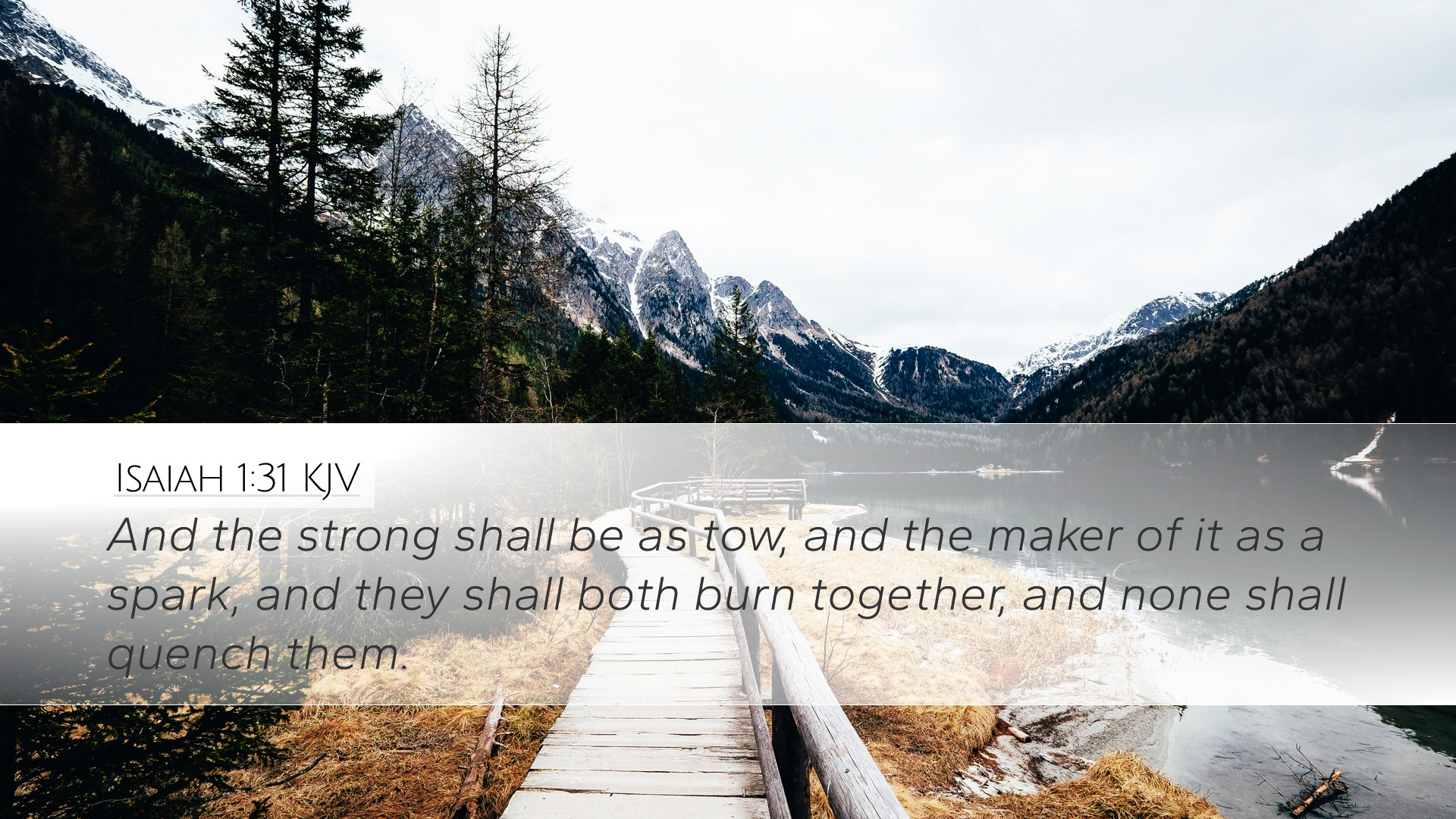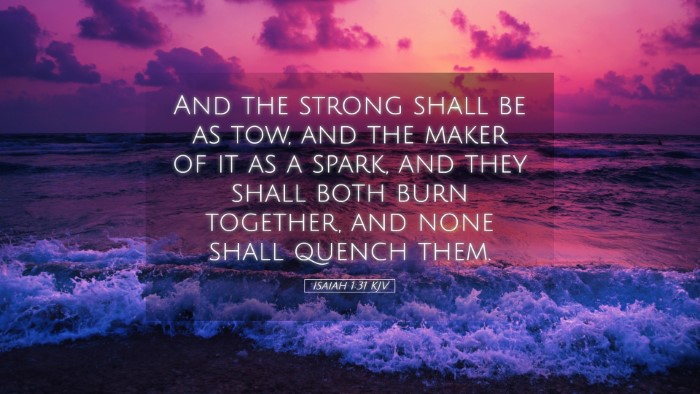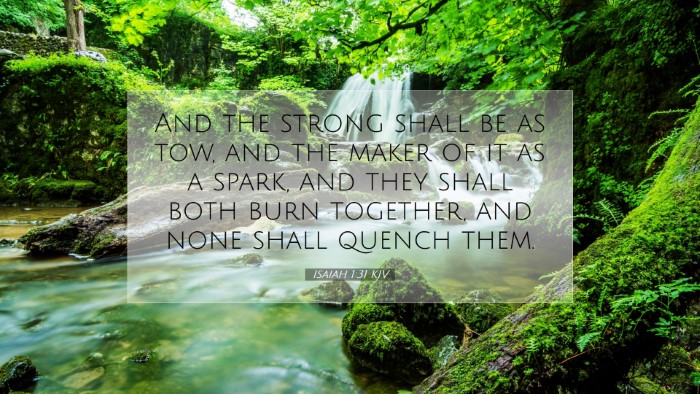Commentary on Isaiah 1:31
Verse: "And the strong shall be as tow, and the maker of it as a spark, and they shall both burn together, and none shall quench them." (Isaiah 1:31 KJV)
Introduction
This verse stands as a sobering conclusion to Isaiah’s vivid depiction of the spiritual and moral decay among God’s people. In the context of the preceding passage, it highlights the inevitable judgment that will come upon those who reject God's commandments and pursue idolatry and sinful practices. The imagery of fire serves to illustrate divine judgment and the ultimate fate of the unfaithful.
Historical Context
Isaiah prophesied during a tumultuous time in the history of Israel, marked by political instability and rampant injustice. The people had turned away from God, engaging in disobedience and oppression. The image of the 'strong' and 'maker' burning together captures God's impending judgment not only upon the people but also upon their leaders who had allowed unrighteousness to flourish.
Insights from Public Domain Commentaries
-
Matthew Henry Commentary:
Henry interprets this verse by underscoring the futility of human strength and the superficiality of those who place their trust in worldly power. He states that the strong, despite their might, will face the same judgment as those weaker. The spark represents the origin of destruction – a reminder that without the divine protection, even the strongest will not withstand God’s judgment.
-
Albert Barnes Notes on the Bible:
Barnes elaborates on the metaphor of ‘tow’ and ‘spark,’ asserting that they symbolize the characters of the ungodly when confronted with God’s wrath. The imagery conveys how impermanent the lives of the unrighteous are—no matter how powerful they may consider themselves. The idea that they “shall both burn together” reiterates the comprehensive nature of God’s judgment, affecting both the exalted and the lowly.
-
Adam Clarke's Commentary:
Clarke presents an analysis focusing on the certainty of destruction that lies in store for the unrepentant. He emphasizes the lack of escape from the divine judgment, suggesting that both spiritual leaders and common people will face the same dire fate. The use of fire not only signifies judgment but also transformation. Clarke suggests that those who do not turn back to God will ultimately perish, highlighting that fire can also symbolize the purifying aspect of God’s righteousness.
Theological Reflections
The theological implications of Isaiah 1:31 are profound. This verse teaches that human strength is ultimately powerless against divine judgment. No amount of fortitude or power can protect those who are outside of God’s will. The image of burning serves as a cautionary tale for believers and non-believers alike, highlighting the need for repentance and return to righteousness.
Furthermore, the communal aspect of judgment is noteworthy. It portrays the collective consequence of societal sin. The leaders and people are linked; their fates intertwined by their shared rebellion. This serves as a reminder to pastors and leaders about the gravity of their influence and the responsibility they carry in guiding their communities toward righteousness.
Application for Pastors and Theologians
For pastors and theologians, this verse serves as an urgent call to vigilance in moral and ethical guidance. One must examine whether they are leading their congregations towards truth or allowing them to drift into complacency and sin. It calls for a recognition of the temporality of human structures and the need for a firm foundation in Scriptures, as well as practical holiness.
Additionally, this passage implores delivering messages of warning about the reality of divine judgment. It is essential to engage not only in comforting teachings but also in the hard truths of judgment and repentance, emphasizing that without genuine contrition, destruction is inevitable.
Conclusion
Isaiah 1:31 poignantly encapsulates the essence of judgment faced by those who stray from God’s commandments. The strong and the weak alike are subject to the consuming fire of God’s holiness. The insights from Matthew Henry, Albert Barnes, and Adam Clarke highlight the urgency of heeding this message. For every believer, the reminder is clear: return to God with sincerity, and guide others towards that transformative relationship with Him.


